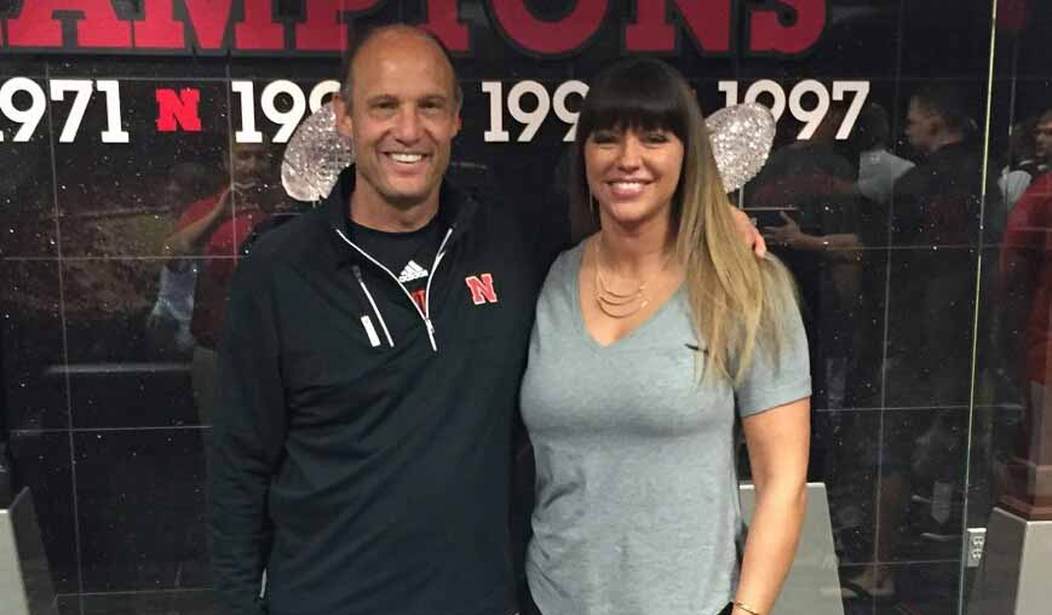As spiritual concepts go, forgiveness is easy for Christians to understand. We need it because we’re sinners (Rom. 3:23). We get it through the blood of Jesus (Eph. 1:7). And to get it from God, we have to give it to others (Matt. 6:14-15).
That last bit of gospel can be tough to take, though. We love the idea of God’s grace covering our multitudes of sin but aren’t always so eager to be gracious toward those who do us wrong. That’s too bad because forgiveness is a powerfully healing process – for both the receiver and the giver.
Brenda Tracy and Mike Riley demonstrated that last week when they met for the first time, 18 years after horrible sins connected their lives anonymously.
Tracy was a 24-year-old single mother back then, and Riley was the football coach at Oregon State University. Two of his players were part of a gang of four men who allegedly raped her. Here is what happened in Tracy’s own words:
The attack lasted more than six hours, and as I went in and out of consciousness the things that they did to me are now burned into my memory. Like a piece of cattle I was branded, never to forget eight hands on me, inside me, their laughs as they high-fived each other in a congratulatory manner as they each took turns raping me.
Branded. Never to forget the next morning when I awoke to the smell of dried vomit in my hair, the stickiness of a condom stuck to my stomach, the food crumbs that left indentations on my skin as I lay face down on the apartment floor like a piece of garbage that someone forgot to pick up.
Riley only suspended his players for one game. Even worse in Tracy’s eyes, he described them as “really good guys who made a bad choice.”
His tolerant attitude made Tracy hate Riley even more than her rapists. She dropped the criminal charges after a backlash that included death threats.
A couple of years ago, after Tracy went public with her story, Riley admitted he could have imposed harsher punishment. He also invited Tracy to tell her story to his current players so they could learn from the past. Riley became the head coach at the University of Nebraska before that could happen, but his invitation stood.
Tracy eventually met Riley, cried on his shoulder, talked with him for more than an hour – and then called him out publicly. It’s a compelling story, and although religion is not directly a part of it, the encounter has profound spiritual overtones.
For years Tracy wasn’t ready to forgive Riley, as was evident from her comments to The Oregonian in May. “I despised that man,” she said. “I hated him with every cell in my body. This is a coach who victimized me.”
But over time she realized “that type of anger eats away at your soul.” Meeting Riley in person, hugging him and airing her grievances soothed Tracy’s soul. “I feel like a ton of bricks have been lifted off my back. Literally I feel like I might be five sizes smaller in my skin.”
Tracy learned that it is emotionally destructive to hold a grudge, even one that seems righteous. That is why Jesus taught His followers how to confront each other over their sins (Matt. 18:15-17). Letting bitterness take root just causes trouble and defiles everyone involved (Heb. 12:15).
Tracy’s encounter with Riley also serves as a reminder that repentance has no statute of limitations. Riley appears to have been oblivious to fact that his muted, lenient response to the rape amplified Tracy’s anguish. But when he learned the impact of his careless words, he apologized.
Although Riley told Tracy he never knew the details of what his players had done to her, he took the blame for that ignorance. He also opened himself to public embarrassment as she told a roomful of people her story in his presence.
Tracy watched the whole room turn and look at Riley as she recounted his bad choice in using the phrase “bad choice” to describe a gang rape. That moment, and the whole experience, meant something to her.
“He thinks about it,” she said. “What happened to me has had an impact on him.” And rather than carry guilt from his own bad choice, Riley made a good choice by letting Tracy coach his team about something more important than football.
It is a choice that stands in sharp contrast to the “serious shortcomings” of Baylor University officials and the bad judgment of a California judge in recent rape and sexual assault controversies. And it is a choice that reflects the wisdom of Solomon: “Whoever conceals his transgressions will not prosper, but he who confesses and forsakes them will obtain mercy” (Prov. 28:13).
“This is what accountability looks like,” Tracy said. “This is what transparency looks like. This is how we get things done.”









Join the conversation as a VIP Member